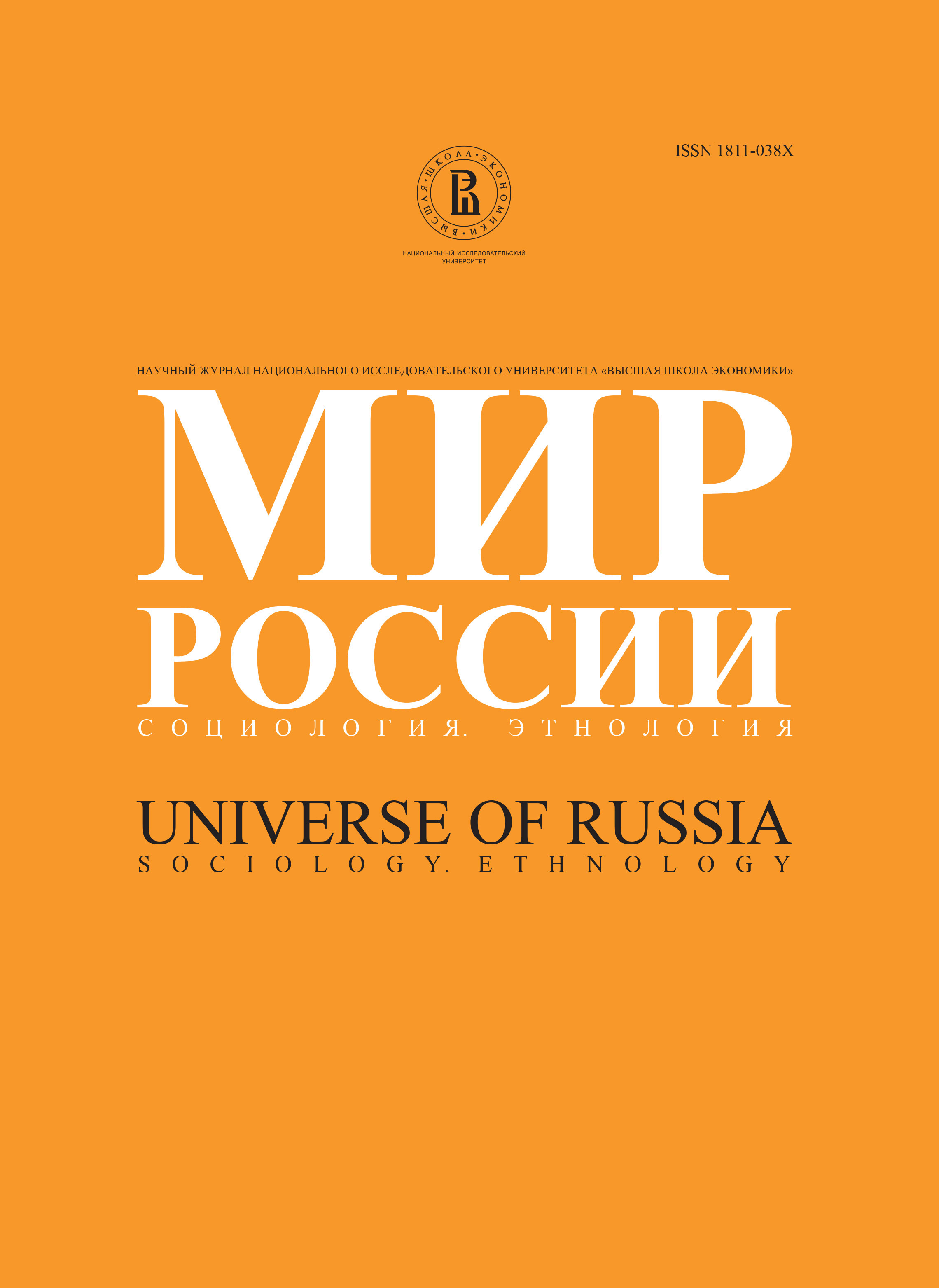An experience of study on formation of the professional Soviet elite (SNK 1937-1941 years)
Abstract
The last years are characterized by sharp struggle of various groupings in echelons of authority and management. One of them, undoubtedly, represents the interests of the old Soviet nomenclature, which was formed during the existence of the party-state system in the country. It has its own interests, the certain principles of formation, selection of the staff and the traditions of behavior ascending to the past are at its disposal.The author of the given article attends to the study of one group or, better to say, groups of the people, making a unit - the elite of a state management - those, who during 1917-1941 oears were entering the supreme managing body of the country - the Council of people's commissars (Sovet Narodnykh Komissarov - SNK or Sovnarkom). It consists of people's commissars, their deputies and members of boards of ministry departments. On the basis of items of the information on these people, assembled in a databank, the author makes the study of the state management elite for more than twenty years. The author makes an attempt to capture completely all the aspects of life of the studying group of people: the past revolutionary activity, career, party and public work, professional and educational preparation and etc.
The author aspires to establish what defined the promotion of the people to the supreme state posts in those years, which criteria worked in the selection of the staff, how the level of their competence, professionalism, educational preparation and experience of work corresponded the level of the occupied posts. The main question, which the author is interested in, is about the time of formation and final registration of the supreme Soviet nomenclature.
One of the aspects of the research consists in finding out the formal and unformal reasons of removal from posts and repressions, which in that time served as a method of the resolution of conflicts, arising at different levels of management, and were given back by original relapses at shift of authority. From this point of view, according to the author's opinion, a special interest is caused by the prewar years. From items of information, assembled in the databank, the personal staff of Sovnarkom in 1937-1941 6ears was separately allocated. And the results of its analysis are submitted in the offered article.
In summary we should note, that in prewar period the circuit and criterions of the selection and arrangement of the staff, formed in the previous years, their rigid subordination, main methods and principles of their work have finally developed and acted productively. The paramount role was given to the completely new factors - a successful career, an experience of work on the profile of the ministry departments, educational training on specialty instead of the important earlier - past revolutionary activity, merits before the Bolshevik party, before the revolution. By the end of 30-th years the country was rules by the people, who were not spontaneously building the politics and training during this process, but were obedient to the supreme instances nomenclature workers with the necessary experience in management system and appropriate education. The new time dictated new requests: there was the necessity in the well-educated specialists, which were able to supervise the country economy, to build a powerful defensive industry, to be guided in needs of the new industrial branches.
In the prewar SNK the main positions were occupied by the so-called "promoters" ("vydvizhentsy") of the 20-th, beginning their career from the bottoms of a hierarchical ladder. By their destiny they have created a new type of the executive worker, a new model of promotion in echelons of management and authority. SNK in 1937-1941 6ears has become really "working - peasant" on origin, but not under its real status. In reality its belonging to a new nomenclature top does not cause doubts. Beginning their conscious life before the revolution, by circumstances of the first world and then civil wars the workers and soldiers determined their further destiny basically in twentieth years having entered the way of career bringing them to the top of a state management. In thirtieth years they formally have passed the category of the employees of the state apparatus - special social group in the social structure of the Soviet society. The posts of commissars, deputies of commissars and members of boards were fixed by the representatives of a new generation. At last, at the end of 30-th years the most important posts in the Soviet government were occupied by the members of Politburo and the party Central Committee, thus finally signifying the transition of the strings of the state management in hands of the party top apparatus.






